An Easy and Useful Guide to Pregnancy Nutrition: Best Foods for Pregnancy
This post may contain affiliate links. As an Amazon Associate, I earn from qualifying purchases.
Whether you’re trying to get pregnant or already pregnant, you may have some nutrition questions. I know I did when I found out I was pregnant!
For me, I was always somewhat conscious of my eating habits. But once I knew I was pregnant, I wanted to make sure I did everything I could to have a healthy baby! It was my mama instinct kicking in I guess.
Pregnancy nutrition is important for feeling your best and growing that beautiful baby. Today, we’ll explore the basics of the best foods for pregnancy.
Disclaimer: I am not a nutritionist. Just a mama (and Doctor of Physical Therapy) that likes to research and use her best judgement. Always talk to your doctor before changing your diet.
Want to cut through all the nutrition noise?
Nutrition is confusing- pregnant or not. It seems there’s always a lot of conflicting evidence out there as to what foods are the best, what ratio we should eat carbs, proteins, and fats in, and more…. it can leave your head spinning for sure!
That’s why I was super impressed with a course I came across specifically made for pregnant mamas. It’s designed by a fellow mama with a background in exercise and nutrition. In her course, The Perfect Pregnancy Plan, she does a great job of breaking down the latest science of pregnancy nutrition so that you can feel informed without feeling overwhelmed.
She then goes one awesome step further to break it down into how to actually implement everything you’ve learned with recipes, meal planning, cheat sheets, and more.
Want to check it out? I wish I had this when I was pregnant with my first daughter. I read a lot about birth and child-rearing but didn’t get too much out of my research about how to boost my health with certain foods during pregnancy.
She offers the pregnancy nutrition course on its own or you can buy a bundle for exercise and nutrition- two extremely important parts of a healthy pregnancy! All we pretty much hear is “eat better and move” when we get pregnant. But having an exact plan, like the one with Allie and her Pregnancy Plan can be a game changer.
Not ready for an in-depth course? There are plenty of great nutrition books out there too:
- Real Food for Pregnancy
- The Whole 9 Months: A Week-by-week Pregnancy Nutrition Guide with Recipes for a Healthy Start
- The Mama Natural Week by Week Guide to Pregnancy (not specific to nutrition but a great all in one option)
Pregnancy Food Basics
If you’re like me, there may have been a moment of panic in early pregnancy when you realized you didn’t know what you should be eating. I found myself focusing on what not to eat. Yet, in hindsight I wished I’d known more about what I actually should have been eating to help my baby grow and stay as healthy as possible!
The good news is good nutrition, whether pregnant or not, is pretty much the same. We should always focus on whole foods, nutrient dense foods, and as little processed food as possible. It’s always a good rule of thumb to follow.
The primary difference with pregnancy is that you need even more of those super nutrient-dense foods! We often hear the adage that we’re “eating for two” during pregnancy. But the reality is that you only need a few extra calories (around 300), while you need a significant amount of nutrients!
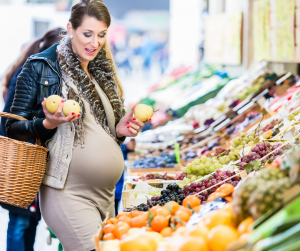
Your Ultimate Overview of Best Foods for Pregnancy
Feel like there’s a lot to know about nutrition? While there is a lot to learn, this overview of the essentials can help you feel informed without getting anxious about the volume of information. Plus, I want you to actually remember this information (yes, pregnancy brain!) so it’s broken up into relatable sections so that you can scan and find what you want to know!
What your doctor will tell you
The true basics are these:
- Start taking a high-quality prenatal, if you aren’t already
- Stop smoking and drinking
- Avoid certain foods that are high-risk
- Get in some regular exercise
And that’s usually about as far as it goes, but there is a lot more that you can do to feel healthy and boost your baby’s health with both exercise and nutrition.
Let’s dive into more of the basics!
Foods to avoid
Here is a quick list of foods women typically avoid during pregnancy- it is up to you to use your best judgment since some are controversial. Talk to your doctor and make a sound choice.
- Raw or undercooked fish
- High mercury fish
- Raw meat
- Deli meat
- Raw eggs (are you seeing a theme here?)
- Caffeine
- Unpasteurized cheese
- Canned foods (particularly with BPA lining)
- Sugar
- Processed fats including vegetable oil and canola oil
- Food left out on the counter or under a heating lamp (aka buffets!)
- Alcohol
- Processed foods- avoid food coloring, vegetable oils, and artificial flavors
- Vegetables including sprouts or anything high in pesticides (go organic!)
- Certain fruits including unripe papaya, pineapple, eggplant, grapes, bitter melon, unwashed fruits and more
Reading Your Food Labels
Reading your food labels is a great way to know exactly what you’re putting in your body. Plus, it’s a great habit to get into with your kids- they hide all kinds of stuff in kids’ food (crazy!).
Keep these specific processed ingredients out of your food as much as possible.
- Added sugar (in high amounts anyway)
- Sugar alternatives- there are a lot of them!
- dextrose, fructose, galactose, maltose, sucrose
- beet sugar
- brown sugar
- cane juice sugar crystals
- high fructose corn syrup or corn syrup
- date sugar, coconut sugar
- dextrin, ethyl maltol, diastatic malt, maltodextrin
- sucanat
- agave, barley malt, molasses, brown rice syrup, honey
- fruit juice, fruit juice concentrate
- And on! Just pay attention to how much of it is in your foods! 🙂
- Food coloring
- Artificial flavoring
- Diet sweeteners like aspartame
- GMO Soy or corn
- Vegetable oils such as safflower and canola
- Monosodium glutamate (MSG) (sorry, Doritos!)
- Anything on a label you can’t pronounce! Your body won’t know what to do with it.

Nutrient Dense Foods Your Pregnant Body Needs
Whole, unprocessed foods are best for giving your body and growing baby the nutrients it needs. Here is a quick list of some of the best options that you can saute, throw in soups or casseroles, or put in an easy-to-drink smoothie.
- Sustainably sourced low mercury fish such as trout, sardines, and salmon
- Grass-fed beef- particularly liver! (I personally can’t stomach it- but some people love it! My husband likes it as a pate.)
- Eggs- preferably free range and possibly organic- don’t skip the yolks!
- Full-fat dairy such as milk, cheese, and Greek yogurt (Did you know we need fat to absorb a lot of our vitamins?!)
- Legumes such as beans, chickpeas, peanuts, and lentils
- Nuts and seeds
- Cruciferous vegetables such as Brussel sprouts, broccoli, bok choy, kale, and cabbage
- Green leafy vegetables like spinach, beets, collards, swiss chard, and herbs like basil
- Whole grains (lowest nutrient density of this list) such as brown rice and quinoa
- Healthy fats such as nuts, seeds, olives, olive oil, avocados, avocado oil, coconut oil, ghee, and grass-fed butter
- Probiotic-rich foods such as kefir, yogurt, kombucha (talk to your doctor), and sauerkraut
- Go for the rainbow of fruits and vegetables! The more colors and variety the more nutrients you are getting.
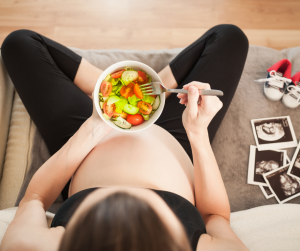
What Vitamins are Essential for Pregnancy?
Basically, all the nutrients your body needs to thrive are also essential during pregnancy. There are a few that are of particular importance for baby’s development that will set them up for good health and give them less risk of disease in their lifetime- pretty amazing right?!
In fact, the really cool science of epigenetics has discovered a lot in the past decade about how foods influence our health. They have found that certain foods can either turn off or on the genes we need for good health (and on the flip side- turn on bad genes). This can mean the difference between disease and health for many of us. Well, the same applies to a developing fetus. When we boost their health and development with the exact nutrients they need, it gives them the best possible chance at good health. That means less risk of chronic disease and illness.
So what vitamins are essential? Here is a quick list of some foods that contain them- it not an extensive list, just a few examples of each to get you started!
- Vitamin A (from food sources ONLY- supplements for this are not recommended during pregnancy)- liver, fish, carrots, broccoli, cantaloupe, bell pepper, and squash
- Vitamin B9 (aka folate)- leafy greens, lentils, cantaloupe, eggs, fish, poultry, beef, butter, asparagus, and broccoli
- Vitamin B12- liver, eggs, fish, dairy, fortified cereals
- Vitamin C- guava, kiwi, strawberries, bell peppers, oranges, tomatoes, and kale
- Vitamin D- salmon, liver, fortified foods like milk and orange juice, dairy, and eggs (the yolks!)
- Vitamin E- nuts, seeds, oils, blackberries, kiwi, avocado and green leafy vegetables
- Vitamin K- meat, eggs, dairy, green leafy vegetables, prunes, blueberries, pomegranate, broccoli, cauliflower, cabbage, and Brussel sprouts
- Iron- red meat, dark greens, eggs, chlorella, beans, peas, dark leafy vegetables, and dried fruit
- Choline- eggs, meat, apples, bananas, milk, broccoli, and peas
- Zinc- mushrooms, green peas, broccoli, spinach, lima beans, avocado, blackberries, and pomegranates
- Iodine- prunes, fish, dairy, iodized salt
- Magnesium- nuts, seeds, spinach, bananas, avocados, yogurt, whole grains, and dark chocolate (yay!)
- Omega-3 fatty acids- fish, nuts, seeds, flaxseed oil, seaweed
- Glycine- meat, fish, dairy, and legumes
- Calcium- dairy, green leafy vegetables, oranges, tangerines, and kiwi
I don’t know about you, but I notice a pretty good theme among the most nutrient-dense foods out there. To me, if I eat a balanced diet with sustainable meat, eggs, dairy, green leafy vegetables, cruciferous vegetables, nuts, seeds, and some fruit- I pretty much hit all my bases!
As I was going through the list of food options, I often noticed that meat, dairy, and eggs were almost always listed first because they have higher concentrations of needed vitamins. I wanted to note that I was a vegetarian with my daughter and I still got all the nutrients I needed from nuts, legumes, eggs, dairy, and produce. I craved cow’s milk like crazy during my pregnancy and I’m wondering if it was because of some nutrients I was missing from meat. If you’re a vegan, make sure you take appropriate supplements for certain vitamins you can only get from fortified foods or meat products.
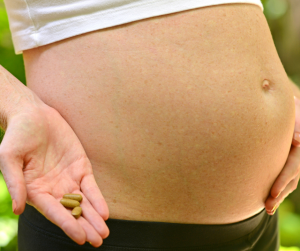
Should I be taking supplements?
When you get to your first OB appointment, one of the first questions they will ask you is if you’ve started taking a prenatal vitamin. As mentioned before, pregnancy takes a lot of work and nutrients as you grow a baby! That’s why a prenatal is an essential part of your pregnancy diet.
When looking for a supplement, make sure it contains folate and not folic acid because it is easier for your body to absorb. If you happen to be reading this before you’re pregnant, it’s also recommended to start taking a prenatal vitamin at least 30 days before you conceive. If not, don’t sweat it just start taking one as soon as possible.
Some of our reader favorites for prenatal options include:
- Nature Made Prenatal (budget-friendly option that I loved- note it has Folic Acid)
- Garden of Life Raw Prenatal
- Smarty Pants Prenatal Gummies (great for those of us resistant to vitamins- tastes like fruit snacks!)
- Thorne Basic Prenatal
- Ritual Prenatal– contains choline!
Talk to your doctor about other supplements you may need in your diet. Typically, a blood test will be drawn at your first OB visit so that you can see if you have any deficits. Then, you can make a personalized plan with your doctor from there with a combination of supplements and foods that you are comfortable consuming!
Other food options to consider
Outside of supplement pills, there are a few other supplement-based foods you might want to consider. What’s tough with these is making sure that they are high enough quality for pregnancy. So do your research and make sure rigorous third-party testing has been done on any products you decide to buy. Some options include protein powder and superfood powders that you can mix in drinks, baked goodies, and smoothies.
Protein powder
There is always a debate over whether protein powder is necessary or not during pregnancy. However, for some women getting the recommended amount of protein, which is higher during pregnancy, is hard to come by. This is especially true if you have any food aversion to meat, eggs, or dairy during your pregnancy.
Feel like you’re falling short on protein? It’s definitely an essential nutrient for building a baby. Look for a protein powder that is non-GMO, free of additives and sweeteners, soy-free, and doesn’t have any other big chemical names you can’t pronounce.
From my own research and recommendations from other moms, here is what I found for high-quality products:
- Garden of Life Raw Protein
- So lean and So clean Protein Powder
- Baby Booster Prenatal Protein Formula
Another great option is adding grass-fed beef gelatin to drinks and dishes. It is flavorless and still packed with protein and vitamins that can help you boost your pregnancy nutrition.
Superfoods powders
Superfoods in powder form are a great way to get an extra dose of high nutrition in your diet. You can throw them in a baked goodie, oatmeal, smoothies, and more. There is some controversy around superfoods since many of them have detoxing properties for the body. Detoxing is not generally recommended for pregnancy since the extra toxins in the blood could possibly cross the placenta.
However, more recent research recommends “gentle” detoxing to prevent a toxic buildup during pregnancy. Talk to your doctor and make the right choice for you and your comfort levels. Superfoods are packed with antioxidants to boost the immune system and nutrient-dense to give your body the energy it needs without unnecessary calories. As with any food, read the label to make sure it’s non-GMO, soy-free, and free of artificial flavors and colorings.
- Spirulina– this green is packed with protein, folate, iron, magnesium, and vitamin B
- Chlorella– this power green contains omega-3s, folate, iron, and magnesium
- Ashwaganda- this traditional Indian/Hindi herb has been shown to increase fetal vitality
- Moringa– this superfood can help regulate blood sugar, reduce inflammation and has many other beneficial side effects
I personally love the all-in-one options. I pick mine up from Natural Grocers. It’s a supergreens powder with wheatgrass, kale, spirulina, and moringa all in one!
What should my food portions be?
Outside of the vitamins and minerals we need from our diet, you might also be wondering about portions. Let’s look at macronutrients. Basically, we need carbohydrates, protein, and fats in our diet to thrive. But at what ratio should they be eaten?
Unfortunately, there’s no straightforward answer and there is a lot of debate around this, especially with pregnancy. The bottom line with pregnancy is to avoid any extremes. Your baby needs all of the basic building blocks for growth, so cutting out an entire food group is not recommended. (Note: If you were a vegetarian or vegan before- you just might need to make a few adjustments.)
When reviewing recommendations for pregnancy, the numbers were all over the place and the ranges were large. Here was the most consistent information I found from UCSF:
- Carbohydrates: 40-50% (some articles recommended up to 65%!)
- Protein: 20-25% (up to 35% in other articles)
- Fat: 25-35%
As you can see the ranges are pretty big. The biggest takeaway here is to put a lot of variety on your plate. I love the recommendation of packing as much nutrition into your meal as possible by including a mix of all three of these macronutrients with each meal or snack.
Especially with carbohydrates, adding protein and fats to your meal (think hummus with your carrots or peanut butter with your apple) can help keep your blood sugar stable and nausea lessened- an essential for your health, especially during pregnancy.
I’ve talked with mamas who felt their best with very different portions. Some have no energy (aka pregnancy fatigue) without carbs while others have the complete opposite response. So tune into how you feel after certain meals and simply adjust accordingly.

Staying hydrated
We’ve talked A LOT about food. But I want to quickly remind you of the importance of hydration! If you were like me, you’re probably thirsty and peeing all the time anyway all throughout pregnancy.
Shoot for 8-10 8-ounce glasses of fluid per day. Or at least half your body weight in ounces. I always carried around a large metal water bottle with me to stay hydrated. Basically, your pee should be light yellow to clear throughout the day if you’re well hydrated.
Try to keep these drinks off the table during pregnancy:
- Alcohol (of course)- although some doctors are still okay with a glass of wine here and there
- Soda pop- so many chemicals and sugar!
- Diet soda- chemical overload
- Fruit juices- opt for whole fruit instead to help stabilize your blood sugar
- Caffeinated drinks- in moderation only!
Drinks that will boost your health:
- Lemon-infused water- or any fruit or vegetable you like (think cucumber, raspberry, mint, etc.)
- Filtered water- NOT from a one-time use bottle if possible
- Ginger tea
- Red raspberry leaf tea (talk to your doctor about whether you should drink it in your first trimester, it’s often recommended for uterine toning in third trimester preparation)
- Pregnancy tea/breastfeeding tea
- Carbonated water- either grab some at the store or get a soda stream (my FAVORITE kitchen tool in the summer)

What if I’m just too nauseous?
When pregnancy nutrition is all said and done, it only goes so far when you are dealing with morning sickness, low energy, and general nausea.
I remember in my first trimester with each of my pregnancies, I didn’t have the energy to think about my nutrition. Just walking around the grocery store made me feel sick. And even though I felt starving all the time, I was equally nauseous all the time- kind of like a never-ending hangover. Can anyone else relate? I’ll admit I was lazy many times before work and just filled a bottle with milk to get me through the day because it was something that kept me satiated.
If you’re dealing with a lot of nausea, here are some tricks to sneak in some nutrition even when you’re feeling less than motivated:
- First, ask your partner or family for help. Having my husband do a lot of the cooking in my first trimester helped A LOT. It turned out I would eat pretty much anything he cooked (except onions and peppers- which I usually love) as long as I didn’t have to deal with all the prep and smells associated with it.
- Food remedies for nausea:
- Ginger tea with lemon
- Ginger chews (be wary of all the sugar!) or even ginger capsules
- Smoothies- easy to make, high in nutrients, and will keep your belly full and satiated longer
- Choose healthy high protein and fat meals and snacks- this also will keep your energy up and belly full without feeling overfull and nauseous. Think dairy, nuts, seeds, and beans.
- Stay hydrated
- Drink carbonated water- infuse it with ginger and lemon
- Keep it simple! You don’t have to cook smelly gourmet meals to get good nutrition. Sneak in a few extra vegetables, take your prenatal vitamin, and do the best you can with your meals.
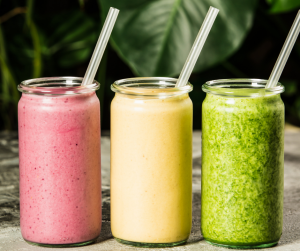
Related article: Coping with Body Image Issues During Pregnancy
What if I’m a picky eater?
If you just don’t have the palate for adding a lot of greens, fruits, dairy, and meat to your diet, there are some options for you.
- Capsules- they make capsules for everything these days. Although it’s better to have whole foods- if you just can’t get yourself to eat these foods, consider a capsule. They have veggie, fruit, and even liver capsules that can help you get the nutrients you need.
- Smoothies- can you hide some tasty powders or greens in a tasty smoothie? Spinach in particular is a great green that you can add to a smoothie with little taste as long as you can ignore the green color. With some tasty berries or banana and creamy milk you won’t even notice the extra nutrition.
- Expertly hide foods in your favorite meal staples. Adding finely chopped or shredded vegetables to sauces, baked goods, making purees for soups or sauces and smoothies can be done with a little creativity.
- Sprinkle some nutrition on your oatmeal or cereal. I keep an “omega mix” in my pantry of hemp seeds, chia seeds, and ground flax (I mix it myself) that I add to everything I can throughout the day for a boost of nutrients with no change to the flavor.

Keep it simple and healthy!
Phew, that was a quick overview packed with a lot of information to get you started with a good pregnancy nutrition plan. Many people get overwhelmed with nutrition, which can lead to paralysis with making healthy eating decisions.
Are you a visual person? Check out this simple infographic:

Eating healthy does not have to be and SHOULD not be complicated. Adding in some nutrient boosters with your regular meals or trying to make healthy swaps when you can is all you need.
Can’t live without pancakes for breakfast? Add some hemp and chia seeds and top it with some berries. Love bread? Try a grain-free bread recipe on occasion. Love French fries? Try a baked version or swap for sweet potatoes. Love soda? Give infused carbonated soda a try. With a little planning, you can choose healthy alternatives when they are available. Once you know what your options are for alternatives, it can feel significantly easier to make the healthier choice.
Often, when we aren’t feeling well during pregnancy, we automatically turn to foods in the past that comforted us (macaroni and cheese anyone?). It’s totally okay to crave these foods and indulge in them sometimes. Just try your best to find a balance. Having a plan and support at home can both help a ton with your pregnancy diet too.
Remember, no matter what, that as long as you’re doing your best you’re on track mama! Perfectionism should never be the goal!
What did you learn today that you will try to add to your current diet? What did I miss that you’d include for a healthy pregnancy diet? I’d love to hear! And I hope this helped!


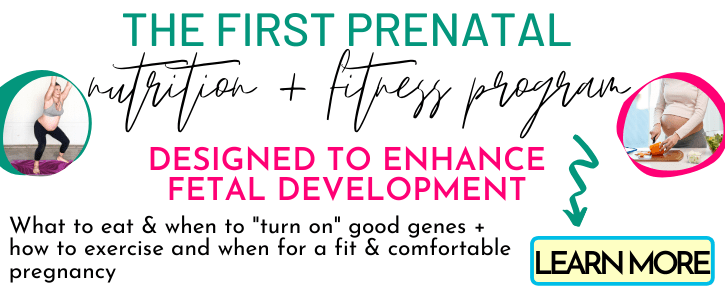

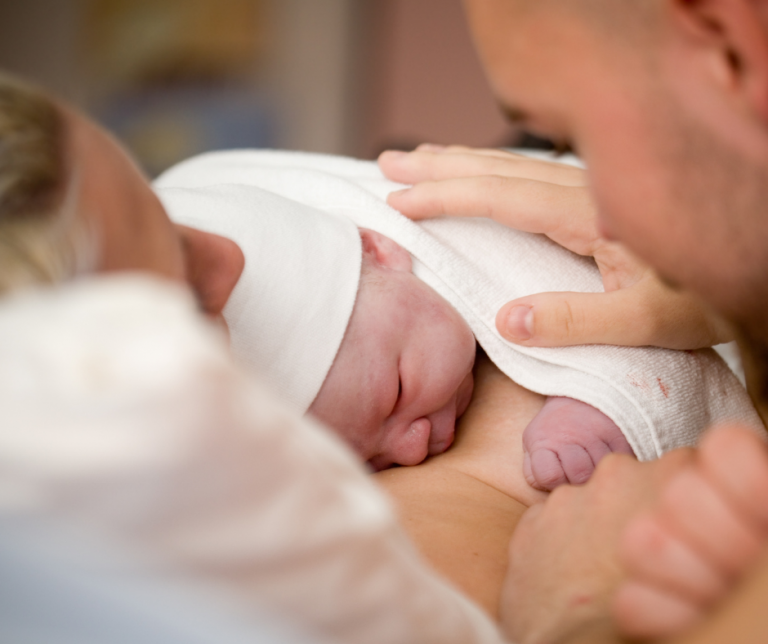




Woh, that’s a massive list. Of all the foods out there I couldn’t eat a proper meal during my first pregnancy. Girls, if you are able to eat a proper meal try to have as many as you can. Thanks for this awesome post.
Thanks for reading Uma! Agreed, a real meal is hard when nauseous. Thats why I lived off smoothies 🙂
Thank you for giving us a good information on food care for pregnacy women it was much helpful.Santhathi Fertility Centre Offers Advanced Fertility Treatment to Help You Expand Your Family with High Success Rates in Bangalore